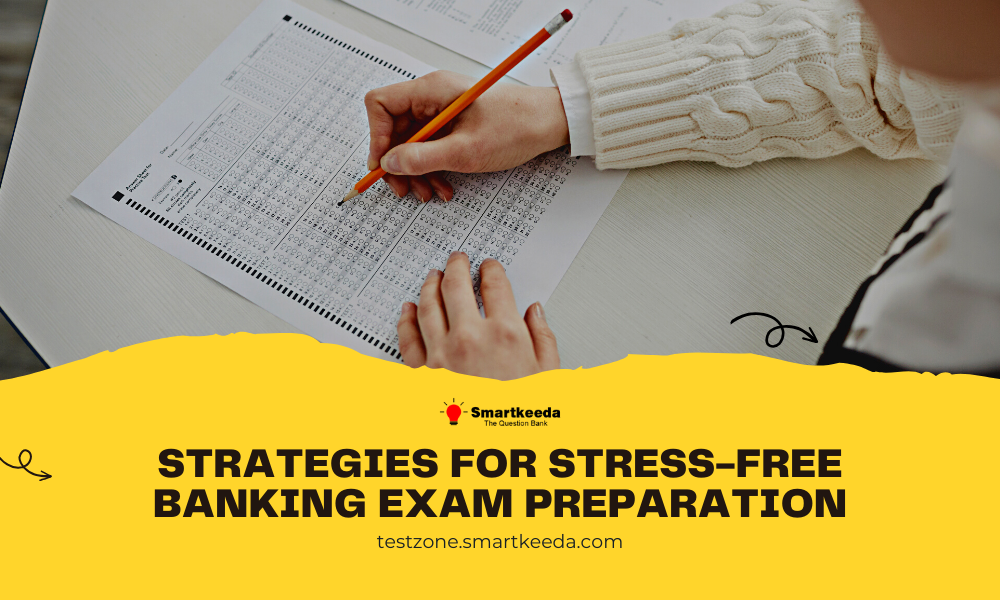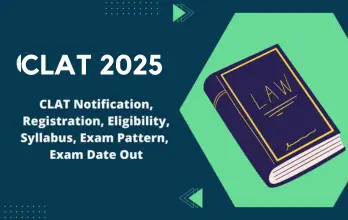
Preparing for exams like banking can be stressful sometimes if you do not have a proper strategy and study plan. But with the right approach you can make the process more manageable and less stressful. If you have a good study schedule and are allocating enough time for every topic, you are in the right direction. In this post we will discuss about that in detail.
Create effective time management first
Setting a Study Schedule; To clear bank exams you need a proper study schedule. It can vary from person to person as everyone has their own strong and weak areas. First you should know that in which subjects or topics you are strong and weak. You should give more time to the weak areas and try to make improvement. Allocate study time based on the daily and weekly tasks. Make a habit of maintaining a proper to do list daily and try to complete it before sleep.
Prioritizing Study Topics; As we discussed above, make a list of topics in which you are strong and weak. Try to allocate extra time to the weak topics. Remember, consistency is the key. Stick to your study plan and regularly complete your To-do-list. To learn a topic you can take help from YouTube. After that practice some 50-60 questions on that topic from online websites like Smartkeeda.
Balancing Work and Study; If you are working somewhere, balancing work and study will be challenging for you. But, if you know how to manage time and do productive work you can do better in the exam. Focus on one subject or topic at a time. Try to avoid multitasking as it can reduce your efficiency and effectiveness. If you are following a source or book for a subject, stick to it. Instead of reading 10 books, read a book 10 times. It will not only save your time but also help you in the long run.
Resource Selection and Organization
Choosing the Right Study Materials; It is very important to choose right study material for your exam. Start by understanding the syllabus thoroughly. Syllabus will give you an overview about the exam. If you are selecting a book make sure to go with reputable publishers. Along with the study material go for a good mock test series like Smartkeeda which can check your progress time to time. By taking mock test you will become accustomed to the exam format.
Creating a Study Toolkit; Create your own toolkit which should include the necessary resources and materials to help you study efficiently. Go for good textbooks, memory based papers, online PDFs, quizzes, mock test papers. Go for structured video playlists and practice quizzes. Collect previous year papers and practice them to familiarize yourself with the exam pattern. You can use a digital calendar or planner to set goals and track your progress.
Organizing Study Notes; Your study notes should be well organized so that you can find them easily when needed. Choose a note taking method that works best for you. Common methods include handwritten notes, digital notes or a combination of both. If you prefer taking notes digitally you can use apps like Microsoft OneNote. Ever note, Notion etc. Organize all the digital files and documents into folders for easy access.
Goal Setting and Tracking Progress
Setting Clear Exam Goals; You should be SMART when it comes to setting goals. SMART means your goals should be:
S – Specific
M – Measureable
A – Achievable
R – Relevant
T – Time-bound
Prioritize your goals based on the requirement of the exam and break them into small and achievable targets. Focus on the areas that carry more weightage in the exam or the topics you find more challenging.
Using Study Milestones; When you are done completing your syllabus, you should start taking mock tests on Smartkeeda. You can set milestones in your preparation like getting 95+ percentile in prelims in the next 2 months, identifying topics in which you are weak and try to make improvement etc. Stick to your study schedule and work consistently towards it as consistency is the key in to clear bank exams.
Monitoring and Adjusting Your Progress; Try to monitor your progress after every mock test you give on Smartkeeda. Be flexible to making changes in your study plan and strategies as necessary. The challenges may evolve as you progress. Regularly revisit previously studied topics and to reinforce your understanding. A good revision strategy ensures that you retain the information over the long term.
Healthy Lifestyle Habits
- A balanced diet rich in fruits and vegetables
- Avoiding excessive suger intake
- Drinking plenty of water throughout the day to stay dehydrated
- Incorporating physical activity into the daily routine
- Getting 7-8 hours of sleep each night
- Taking regular short breaks during study session
- Reducing unnecessary screen time especially before bedtime
Stress Reduction Techniques
Effective Study Strategies
Practice with Mock Exams; Mock tests are very necessary to trek your progress. They not only stimulate the format, structure and conditions of the real exam but also make you exam ready. This familiarity is essential for reducing test anxiety and ensuring that you are comfortable with the test environment and can give your 100% on exam day. They help you enhance your time management skills. You can determine how much time to allocate to each section or question.
You can go Smartkeeda mock test series as they provide a real exam experience. You’ll feel confident in examination hall as the level of questions in Smartkeeda mock tests is very much the same with the real exam.
Post-Exam Reflection and Adaptation
Analyzing Exam Performance; Review your answers and questions you found challenging with the help of memory based papers. Analyze why you answered certain questions incorrectly. Recognize your strengths and areas where you performed well and pinpoint the areas where you struggled and made mistakes. Reflect on how you managed your time during the exam. Did you spend too much time on certain questions? Consider how you can improve your time management.
Identifying Areas for Improvement; Carefully review the memory based papers and analyze why you made mistakes. Was it due to a lack of understanding, misinterpretation or careless error? Determine in which subjects or topics you performed poorly. Consider any distraction or external factors that may have affected your concentration or performance. Reflect your level of confidence during the exam and your test taking strategies. Did anxiety or stress affect your performance?
Adjusting Study Strategies for Future Exams; After deeply analyzing your performance in previous exams, make a flexible and much improved strategy for future. Identify areas where you excelled and struggled. Establish clear and specific goals which should be focused on addressing your weaknesses and improving overall performance. Develop a new study plan and allocate more time to the challenging topics. Experiment with different study techniques if one method hasn’t been effective.

Author : Shashi Garg
Hey, I am Shashi Garg, an aspiring writer, and a Passionate Wordsmith. I Prepared for banking exams for 1-1.5 years and also cleared some. I have been writing for a while now on a popular platform Quora. I feel excited about it because it allows me to share my opinions and experiences with the world. Every piece of information I shared in this post is based on my experiences.
FAQ’s
To deal with exam anxiety and stress, focus on healthy lifestyle, maintaining self talk, practice relaxation techniques like deep breathing and staying in the present moment to reduce worry etc.
Yes, study groups can be beneficial as they provide diverse discussions, shared resources, collaborative problem solving.
Study materials for banking exam preparation include, Standard textbooks, previous year papers, Smartkeeda Mock Test series, study apps, current affair mock drills, etc.
Self assessment is necessary to identify weaknesses, setting realistic goals, reducing anxiety, enhancing retention, and building confidence.
On the day of the exam, wake up early, do healthy breakfast, breathing exercise, positive visualization, drink enough water to stay hydrated, and stay calm and positive.





